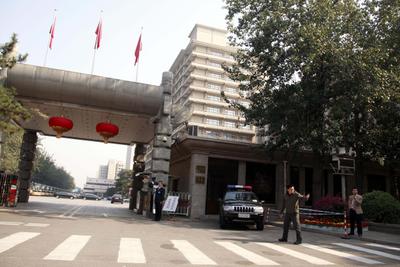This achievement-based utilitarian philosophy has helped the ruling party maintain its legitimacy — despite a significant deterioration in the wake of the 4 June crackdown in Tiananmen Square. But decades of efficiency-driven development have created new social problems and new political forces that the old system of political legitimisation can no longer accommodate. It is this urgent need to strengthen the regime’s original and utilitarian justification that has resulted in the latest round of policy changes.
The power transition from the so-called third generation to the fourth has created the momentum for this major reorientation. Under Hu Jintao’s leadership, a new set of governing philosophies based on ‘scientific development’ and ‘harmonious society’ has replaced Deng Xiaoping’s pragmatism. A new group of non-engineer elites is steadily ascending to power, and the upcoming 18th Party Congress will certainly accelerate this transition and codify the new governing philosophy.
If Deng’s reform was a major breakthrough in contemporary Chinese politics, this ‘new politics of equity’ is simply a process of rationalising that breakthrough. The new problems produced by the economic breakthrough have triggered the latest political efforts to find novel policy solutions and formulate an alternative development model. These new policies will necessitate many changes in the existing political institutions, such as ‘big ministry reform’, the endorsement of deliberative democracy, and changes to the election law to embrace equal representation of rural and urban populations. Changes will also become necessary in the country’s leadership styles, as evidenced by the new slogan ‘governing for the people’.
The revival of the politics of equity is part of a political cycle that has consistently characterised Chinese politics in modern history. On the one hand, efforts to maximise efficiency will compromise equity and, consequently, invite efforts to correct the equity deficiency. On the other hand, excessive efforts to enhance equity will likely have a negative impact on efficiency. The balancing act between the achievements of these two objectives constitutes a dynamic force in China’s political development.
The politics of equity differs significantly from the politics of efficiency. Equity is a function of political power. An unbalanced distribution of political power will lead to political as well as economic inequality. If the institutions that produce the inequality in power and wealth are not reformed, the goal of equity will be unattainable. And if the development model is unsustainable, the regime’s legitimacy will be in question — hence the rush toward policy innovation. The renewed call for political reform and the gradual opening up of political participation may offer a promising solution to the party’s legitimacy deficiency, and has also reignited hope of getting the stalled democratisation process going again.
It is true that China’s success in economic reform has greatly improved its economic performance since 1979. But in recent years the reformers have been put on the defensive by a number of domestic issues: the widening income gap between rural and urban populations, the emergence of the new urban poor, the worsening regional disparity between the more developed coastal regions and western China, and widespread public criticism of market-oriented reforms in health and education. The mounting pressure for social justice has also resulted in an escalating number of disputes, complaints and protests. In light of this, China’s move to rationalise its reform process is indeed long overdue.
Baogang Guo is Professor of Political Science at Dalton State College, and is the author of China’s Quest for Political Legitimacy: the New Equity-enhancing Politics.

